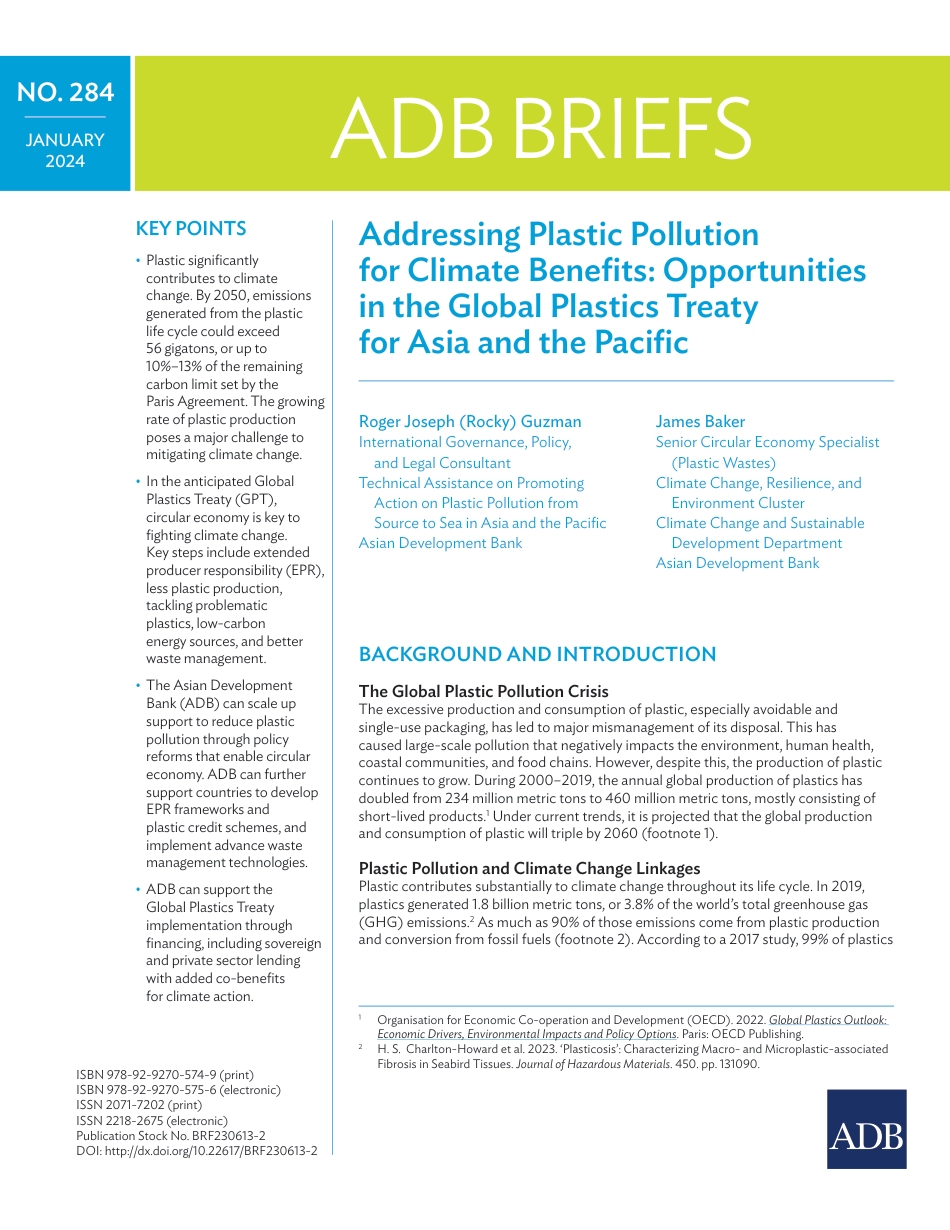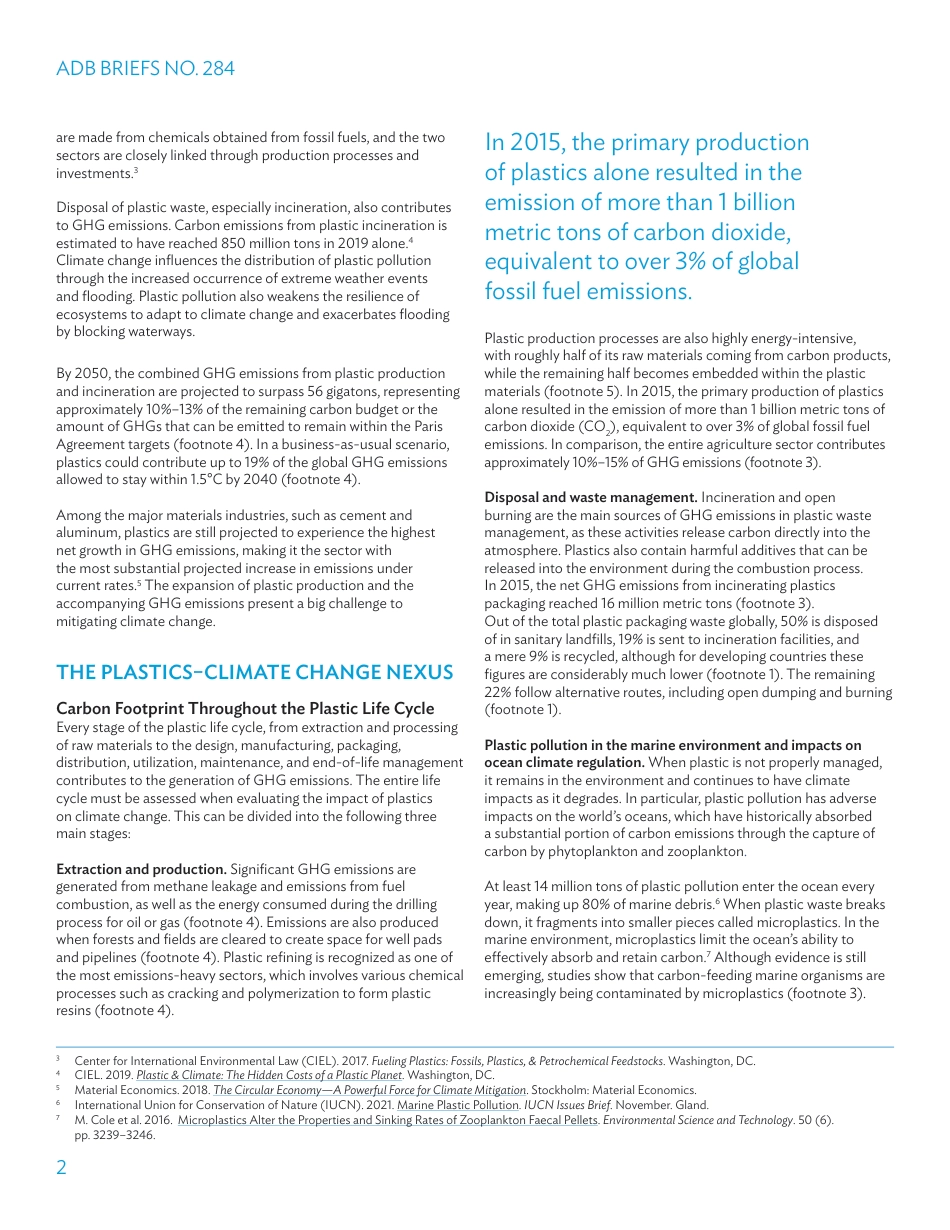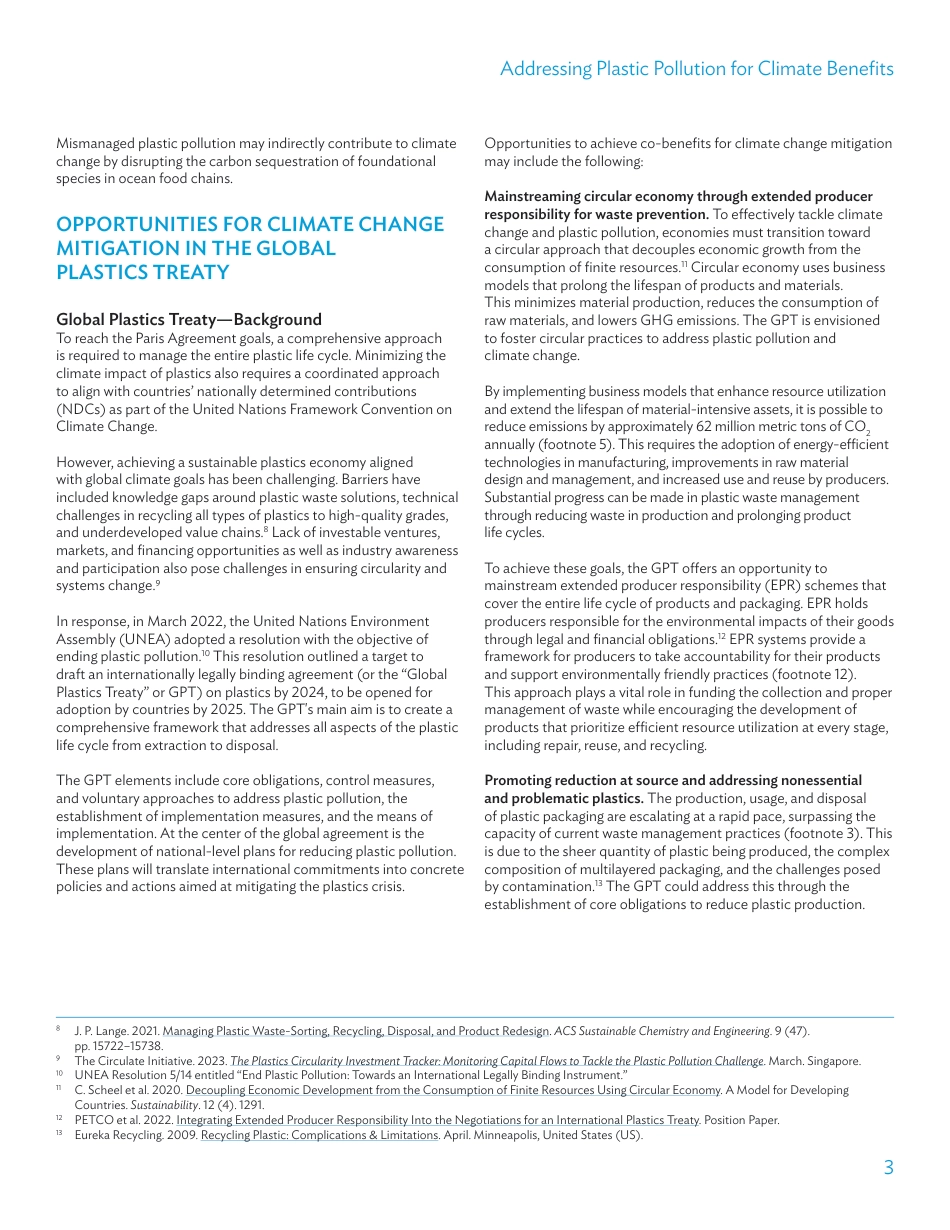ADB BRIEFSISBN 978-92-9270-574-9 (print)ISBN 978-92-9270-575-6 (electronic)ISSN 2071-7202 (print)ISSN 2218-2675 (electronic)Publication Stock No. BRF230613-2DOI: http://dx.doi.org/10.22617/BRF230613-2KEY POINTS• Plastic significantly contributes to climate change. By 2050, emissions generated from the plastic life cycle could exceed 56 gigatons, or up to 10%–13% of the remaining carbon limit set by the Paris Agreement. The growing rate of plastic production poses a major challenge to mitigating climate change.• In the anticipated Global Plastics Treaty (GPT), circular economy is key to fighting climate change. Key steps include extended producer responsibility (EPR), less plastic production, tackling problematic plastics, low-carbon energy sources, and better waste management.• The Asian Development Bank (ADB) can scale up support to reduce plastic pollution through policy reforms that enable circular economy. ADB can further support countries to develop EPR frameworks and plastic credit schemes, and implement advance waste management technologies.• ADB can support the Global Plastics Treaty implementation through financing, including sovereign and private sector lending with added co-benefits for climate action.Roger Joseph (Rocky) GuzmanInternational Governance, Policy, and Legal ConsultantTechnical Assistance on Promoting Action on Plastic Pollution from Source to Sea in Asia and the PacificAsian Development BankBACKGROUND AND INTRODUCTIONThe Global Plastic Pollution CrisisThe excessive production and consumption of plastic, especially avoidable and single-use packaging, has led to major mismanagement of its disposal. This has caused large-scale pollution that negatively impacts the environment, human health, coastal communities, and f...



